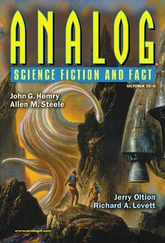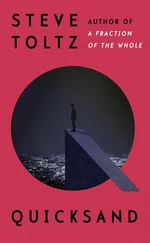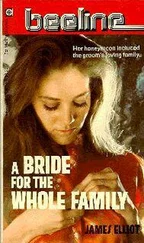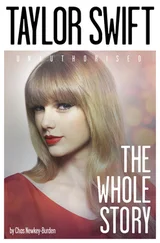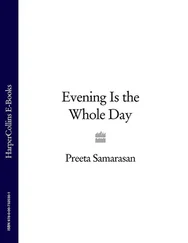An ambulance had arrived, though not for the broken box. A man was stretched out on the pavement, his face covered with a white cloth soaked in blood. At first I thought he was dead, but he removed the cloth to reveal a face of blood and powder burns. No, he wasn’t dead. He was blind. He’d been reaching into the box to place a suggestion when the whole thing exploded in his face.
“I can’t see! I can’t fucking see!” he was shouting, panicked.
It was Lionel Potts.
There were more than fifty men and women on the scene, and in their eyes was a sort of thrill, as if they had come to dance in the streets on an enchanted evening. Through the crowd I saw Terry sitting in the gutter with his head between his legs. The horror of his badly timed act of vandalism was too much for him. Lionel had been the one bright light in a world full of dim ones, and Terry had torn his eyes out. It felt strange to see shards of my suggestion box strewn all over the road, and the way my brother was slumped in the gutter, and Lionel sprawled on the pavement, and Caroline hunched over him; it seemed to me that my loved ones had all exploded too. Smoke still hung in the air, curling in the bluish light, and it smelled very much like firecracker night.
Only five days later our family was dressed in its Sunday best.
Juvenile courtrooms are just like regular courtrooms. The state tried a number of charges on Terry like a rich woman trying suits on her favorite gigolo: attempted murder, attempted manslaughter, malicious wounding- the prosecutors couldn’t decide. They should have arrested me too. I don’t know if egging on a crime for love is an offense punishable by law, but it should be.
In the end, Terry was sentenced to three years in a juvenile detention center. When they took him away, he gave me a little wink. Then he was gone, just like that. The rest of us stood hugging each other in the courtroom, totally bewildered. I tell you, the wheels of justice may turn slowly, but when the state wants you off the streets, the wheels that carry you away spin like comets.
Democracy
After Lionel’s blinding, I found myself haunted by questions, and after Terry’s incarceration, I felt those questions pressing down on me from all sides. I had to do something. But what? I had to be someone. But who? I didn’t want to imitate the stupidity of the people around me. But whose stupidity should I imitate? And why did I feel sick at night? Was I afraid? Was fear making me anxious? How could I think clearly if I was anxious? And how could I understand anything if I couldn’t think clearly? And how was I going to function in this world if I couldn’t understand anything?
It was in this besieged state that I arrived at school, but I couldn’t make my way through the gates. For a good hour I stood staring at the ugly brick buildings, the dim-witted students, the trees in the playground, the brown polyester pants of the teachers making a swishing sound on their fleshy thighs as they marched between classes, and I thought: If I study hard, I’ll pass my exams, but so what? What do I do between that moment and the moment of my death?
When I got home, neither my mother nor my father seemed to care very much that I had quit school. My father was reading the local paper. My mother was writing a letter to Terry, a long letter, forty pages or more. I had sneaked a peek but couldn’t get past the uncomfortable first paragraph, in which she wrote: “I love you I love you my darling son my life my love what have you done my love my lovely son?”
“Didn’t you hear me? I said I’ve quit school,” I repeated in a hurt whisper.
They didn’t react. What was conspicuously lacking in the silence was the question, What are you going to do now? “I’m going to join the army!” I shouted ludicrously, for effect.
It worked, though in the manner of a firework that sizzles and sparks on the ground, then abruptly dies out. My father actually said “Ha!” while my mother half turned her head to me and said in a quiet, stern voice, “Don’t.” And that was it.
In retrospect, I see how desperately I needed attention after a lifetime of being small print to my brother’s headlines. I can think of no other reason for my stubborn, impetuous, self-destructive decision to follow up on my threat. Two days later, in the Australian Army Registration Office, I found myself answering stupid questions with stupider answers. “Tell me, sonny, what do you think makes good army material?” the recruiting officer asked. “Light cotton?” I offered, and after not laughing for ten straight seconds, he grudgingly sent me down to the doctor. Unfortunately, that was the end of my adventure. I failed the mandatory physical examination with flying colors. The doctor probed me with an astonished look on his face and concluded that he had never seen a body in as bad a shape as mine outside of wartime.
Against all reason, I took the rejection badly and plunged into a deep depression. What followed was a period of lost time: three years, during which I felt myself circling the questions that had been circling me, though I never found the answers I needed. While searching, I went for walks. I read. I taught myself the art of reading while walking. I lay under trees and watched the clouds creep across the sky through a veil of leaves. I passed whole months thinking. I discovered more about the properties of loneliness, how it is like the slow squeeze of testicles by a hand that has just been in a refrigerator. If I could not find a way to be authentically in the world, then I would find a superior way of hiding, and to that end I tried on different masks: shy, graceful, pensive, buoyant, jovial, frail- they were the simple masks that had one defining characteristic. Other times I tried on more complicated masks, somber and buoyant, vulnerable yet cheerful, proud yet brooding. These I ultimately abandoned as they required too much upkeep on an energy level. Take it from me: complex masks eat you alive in maintenance.
The months groaned by, turning into years. I wandered and wandered, going mad with the uselessness of my life. Having no income, I lived cheaply. I gathered unfinished cigarette butts from pub ashtrays. I let my fingers turn a rusty yellow. I gazed stupidly at the people of the town. I slept outside. I slept in the rain. I slept in my bedroom. I learned valuable lessons about life, such as that a person who is sitting is eight times more likely to give you a cigarette than a person who is walking and twenty-eight times more likely to give you a cigarette than a person inside a car stuck in traffic. No parties, no invitations, no socializing. I learned that detaching is easy. Retreat? Easy. Hiding? Dissolving? Extraction? Simple. When you withdraw from the world, the world withdraws too, in equal measure. It’s a two-step, you and the world. I didn’t look for trouble, and it wore me down that none found me. Doing nothing is as tumultuous for me as working on the floor of the New York Stock Exchange on the morning of a market crash. It’s how I’m made. Nothing happened to me in three years and it was very, very stressful.
The townspeople began to look on me with something resembling horror. I’ll admit, I cut a strange figure in those days: pale, unshaven, scraggly. One winter’s night I learned that I had been unofficially proclaimed the town’s first homeless lunatic, despite the fact that I still had a home.
And still the questions remained, and each month my demand for answers became louder and more insistent. I went on an uninterrupted bout of inward stargazing, where the stars were my own thoughts, impulses, and actions. I wandered in the dirt and the dust, cramming my head with literature and philosophy. The first true hint of relief had come from Harry, who first introduced me to Nietzsche back when I saw him in prison. “Friedrich Nietzsche, Martin Dean,” he said, making the introductions while throwing a book. “People are always angry at anyone who chooses very individual standards for his life; because of the extraordinary treatment which that man grants to himself, they feel degraded, like ordinary beings,” he said, quoting his idol.
Читать дальше

